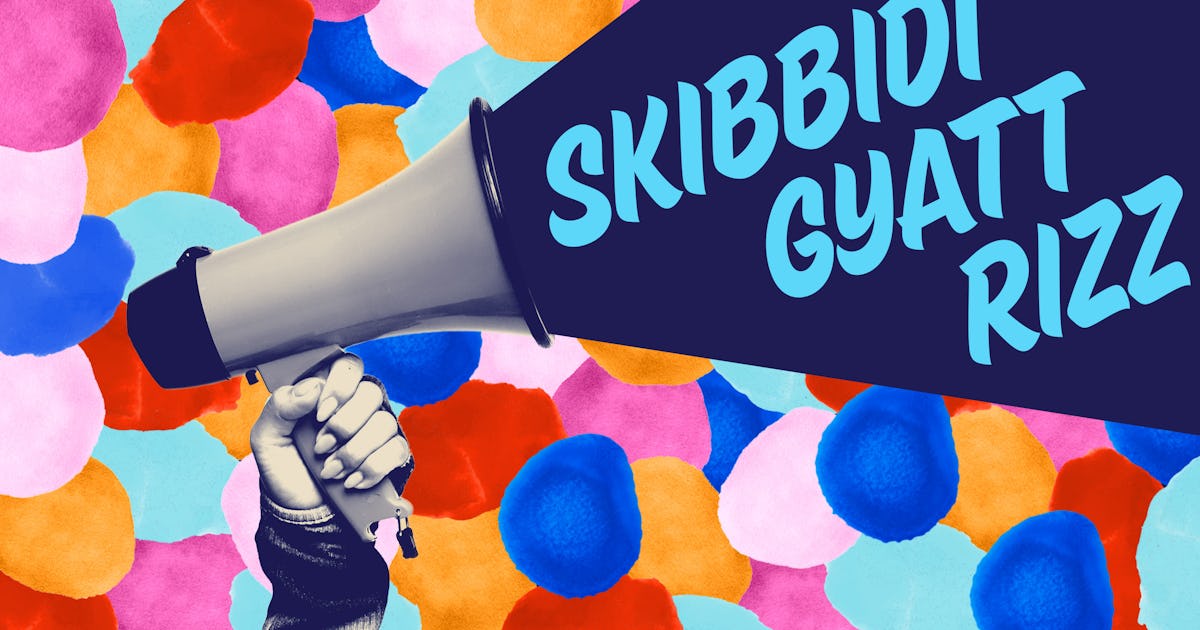We’ll level with you: By the time you finish this article about the slang you can expect to hear from your school-aged child this year, it will already be out of date. Such is the nature of children. Since the dawn of time (we’re guessing), the cycle is as follows:
- The children come up with some weird word.
- Adults express confusion or annoyance with said new word, to the delight of children.
- Adults finally figure out what the children are talking about.
- Repeat steps 1-4.
It’s a vicious cycle. But some of the strongest warriors we parents have on our side in all this are none other than our kids’ teachers, aka the adults who are embedded in a predominantly child-filled environment. They are in the rare position to observe how kids are talking to each other and therefore glean insight into what’s new, what’s up and coming, and what it all means.
So we asked some teachers we know to give us the 4-1-1/deets/skinny on the phrases they’ve been hearing, or have already heard that they’ve had to explain to their adult friends. You might have heard some of these, you might not have… but we’re guessing if you haven’t, you will — and now you’ll be prepared.
It’s worth mentioning that a lot of these phrases originate in Black and/or queer culture, so if you’re a Black or queer parent, well, you have a leg up. For everyone else who needs a guide to help get them through the school year with their slang-slinging kids, here you go.
Slang You Might Hear This Year
6-7
“I have asked a million kids, my own child included, and still haven’t gotten a cogent explanation of what it means and where it comes from,” says Michigan teacher Sarah Y. “But they say it all the time.”
Specifically, they say it in a very particular way. IYKYK.
Don’t overthink this: Basically, it’s less slang and more a verbal meme that originated with the song “Doot Doot (6 7)” by Skrilla, which shot to popularity on TikTok and Instagram.
Gyat(t)
This riff on “god damn” refers to a butt. Specifically, a shapely butt that makes you say “GYATT [DAMN]!”
There’s a good chance your young child is saying this without really knowing what it means. Don’t come down too hard on them.
On God
“Kids telling me they did their homework but just don’t have it on them was annoying enough before they all started saying ‘On God, Mr. P! On God!’” says Adam P., a high school teacher in New Jersey.
The gist: It’s a way to say “Swear to God” but, like, slightly quicker, I guess.
Lore
It’s essentially a way of saying “backstory” or “background information,” generally about a person or fictional character. Often, lore is defined as canonical and complicated, but it helps to truly explain someone on a deep level.
Delulu
“I think my students like this one because it’s fun to say,” says Marnie W. She adds that, at first, she was a little leery that the term — meaning “delusional” — bordered on offensive, but ultimately let it ride.
“By December, they’ll probably stop saying it anyway,” she chuckles. And… yes.
Cinema
As far as I can figure (and I’ve heard this one from my own 11-year-old), this comes from a meme of director Martin Scorsese declaring something “Absolute Cinema” and now refers to something that’s high drama, magnificent, or magnificently messy. It’s similar to the way a millennial, at one point, might have said “epic.”
Crash Out
“Crash out is the new spiraling,” says Marnie, though she notes that, like “spiraling,” this seems to be liberally used by the youths.
“Everything causes a crash out,” she sighs. “No chocolate milk left in the cafeteria? ‘OMG! I’m crashing out!’ Can’t find the purple marker during group work time? ‘You guys, I’m crashing out.’”
Brainrot
This is relatively self-explanatory, but refers to nonsensical online content. Sometimes specifically Italian Brainrot, which often relies on AI technology to play around with established, silly characters like Tralalero Tralala.
The children love their brainrot.
Main Character Energy
“It’s a quick way to dismiss someone for taking themselves too seriously or for having an inflated sense of self-importance,” explains Adam. If you have Main Character Energy, you think of yourself as the star of the show — the one the whole story revolves around.
Big Back
This is one that, depending on context, is either self-deprecating good fun or downright mean. For the former, it simply means someone who likes to eat a lot. My son consistently refers to himself as a “big back” as he heads to the pantry for yet another snack. On the other hand, it can be used as an insult (think of it as calling someone a “fatass”).
Now that you know what it can mean, you’re in a better position to know whether your kid is being silly or needs a talking to about not being a bully.
You’ve Got This
So there you have it: words we kind of know, mostly don’t, and will continue to be baffled by until we’re not and the kids come up with new words to confuse us.
But, pro-tip? Just because you don’t know these words doesn’t mean you can’t sprinkle them into conversation to annoy your children. The more incorrectly you apply it the better, to be honest. It will give them, as they say, the ick, and what fun is parenting if your kids don’t think you’re cringe?
Disclaimer: This content was automatically imported from a third-party source via RSS feed. The original source is: https://www.scarymommy.com/lifestyle/teachers-predict-the-slang-youll-hear-this-school-year. xn--babytilbehr-pgb.com does not claim ownership of this content. All rights remain with the original publisher.


